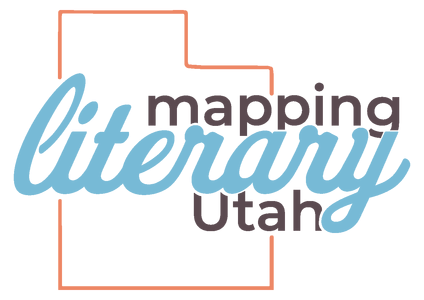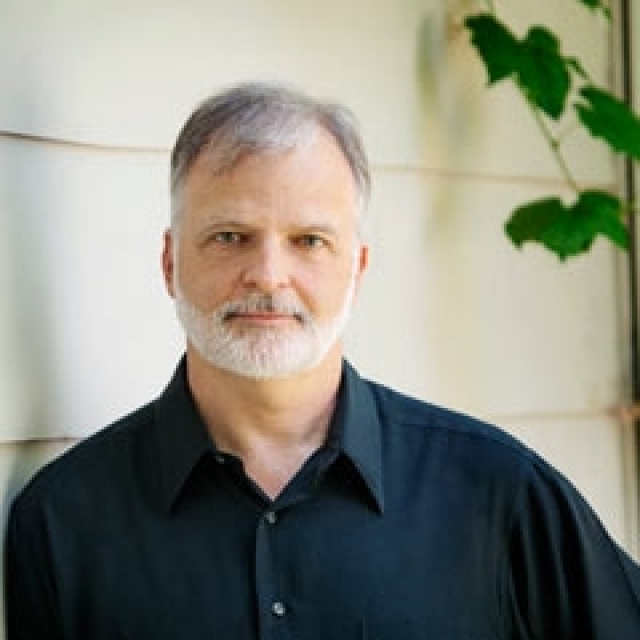Damascus Road
Damascus Road
“I am a religious man,” Paul told him for the second time, through the haze of too many Bass ales. “I can help you.” The man, in his kippah and orthodox garb, squinted up at him, mouth twisted, fringe from his tallit dripping off his sides like old pasta. It was Friday night in mid-town Manhattan.
The Jewish man started in again, not really pacing up and down 7th Avenue, but turning this way and that, gesturing downtown from where Paul had come, weaving from the Irish pub near the Sheraton in his drunken grievance. Now Paul had a situation. Not just a street person asking for money, or the time of day. Here was an inconsolable man, playing off his innocence to the big city just as Paul was.
Am I religious? thought Paul. Still?
No one would be answering the phone at the yeshiva upstate. Having been relieved of his wallet by “filthy homeless people,” the man explained to Paul, he hadn’t had the money to take the bus back before sundown. He had said this with much woe, wagging his head which, though bearded, was missing the extravagant, curled payot typical of many of the orthodox in New York. The man was visiting from Tel Aviv and wanted to see the city. Now this. “I went to the police. I sit there for two hours, then left,” he said through an accent, his hands drawn to his face, covering his eyes as if trying to transport himself away from the city by not looking at it. The January wind was picking up. He gathered his dark wool jacket around him tighter.
Paul took the man back to his hotel on Lexington.
The visitor, finally quieted, sat in the upholstered chair and smoked a thin, stinking cigarette. Paul sat on the bed in the tiny room, the beer in his head finally clearing. On the way back to his room, Paul had to find a place to pee on the cross street to the hotel–between a parked town car and a backhoe at rest. Returning, Paul had put his arm around the stooped man who was close to his own age, to reassure him. He had told him that he had done a kind of pilgrimage to Israel when he was in college and that more than once he had been to Tel Aviv on business. That being a religious man himself, he understood the difficulties one’s faith could present.
What Paul didn’t say was that, like his guest, who would be spending the night with him, he too was violating the rules of his creed. First there was the drinking and whatever he was going to find in the direction away from the Irish Pub that night—a sex shop, a prostitute?–and then there was the fact that he hadn’t been to church since his divorce three years earlier.
“What line of work are you in?” Paul asked, to get the man’s mind off his troubles. The man squinted at Paul. “What do you do in Tel Aviv?” Paul rejoined. “You know . . . job?”
The man stubbed his cigarette out in the makeshift ashtray. “Lawn furniture,” he said. “My name is Saul. You are a kind man.” He worried over the cigarette butt, rubbed it into the bottom of the glass until the flecks were scattered like ground pepper. “I can repay you,” he continued. “When you are next in Israel, you will be my guest.”
They readied for bed. Saul sighed and stood to unbutton his shirt, draped it over the back of the chair. He turned his back to Paul. Looked around. Then he removed the fringed tallit katan which he folded carefully and set aside. Paul pretended to arrange something on the bureau. In the mirror he could see Saul’s back, a profound uncertainty welting his shoulders. Finally, Saul stripped off his sleeveless T-shirt. His chest and arms were stout, with coarse, black hair. Paul turned, removed his own overcoat, then his sweater and shirt, revealing the scooped neck of his cotton undergarment and its tiny, stitched symbols—the compass, and the square—one over each breast. The two men looked at each other.
“I can take a shower?” Saul asked.
“Of course,” said Paul. (What else could he say?) “Towels are there.” He gestured toward the bathroom. Saul turned to drop his pants to the floor. Underneath he was wearing skivvies, a sort of bikini bottom and in the wildest colors Paul had ever seen—fuchsia bands and hot pink swirls over dark purple. Still, Saul’s kippah rested on his head as he disappeared into the bathroom. “Will you turn on light for me?” he asked returning momentarily to the room, and suddenly looking elfin.
Paul flipped the switch for Saul and pulled the door shut behind him. He looked at the bed. A full, not even queen-sized. Were they really going to sleep there tonight? Two men? Complete strangers? What was he thinking of? He looked through his luggage. Zipped it closed. Then opened it and placed his wallet inside. Zipped it back closed. He turned around, and Saul was standing there in a towel. His kippah still atop his head. He pulled his skivvies back on under his towel, dropped the towel and got into bed. Only when he was lying on his back did he carefully remove the kippah and place it on the bed stand. The light burned above the headboard.
Paul flipped the bathroom light off. Saul lay in bed, the sheet pulled up under his chin, hair on his knuckles. Paul removed his pants and stood there in his thin white temple garment, extending to his knees. Symbols not only on each side of his chest but over his belly and right knee. Saul looked at him curiously.
“Christian?” he asked.
“Sort of,” replied Paul. They stared at each other, until Paul felt the tired, ancient need to explain himself. “It’s like a second skin, sort of,” he said. “I think I might,” he gestured at the chair. “Stay up for a bit?”
“I’m sorry,” Saul said. “I can sleep there.”
“No,” said Paul. “I want it this way. You need your rest.” After a moment of looking
at each other, Saul turned away in the bed. Paul picked up one of the pillows then reached up over the bed, and turned off the light. “Thank you,” he heard Saul say in the dark.
Settling into the chair, Paul pulled his overcoat up over him, settling in. The booze in his blood had long left him. In place of it was the dreary promise of morning. Within thirty minutes, he woke up with a start on the floor, in a fetal position. He went to the bathroom. Looked at the bathtub, then returned to the chair. Finally, he crawled into the bed next to Saul, listing to the edge. There was the squeaking of the springs, what seemed a cacophony of shifting starched sheets which kept him from the awkward silence he knew would ensue once he lay still. He was just so tired.
Saul talked in his sleep. In Hebrew, or was it Yiddish? Paul didn’t know. At one point Paul found Saul’s hand between his legs. He placed Saul’s hand back where it belonged, and rolled to his left. Later, Paul rolled into Saul, spooning him, the hair on Saul’s legs pricking him. Saul shook him off, so that Paul got up. He took off his garment top. Then fifteen minutes later got back up and put it back on. The garment was something he could not bring himself to permanently shed, despite his backsliding, but still wore hidden under his clothes even when he was out drinking and whoring. Lying there, wide awake, he thought about all of his secrets. And then, before finally drifting off to deep sleep, he thought of the morning and the erection he would inevitably have. He figured that Saul, observant Jew or not, would suffer the same break-of-day affliction. It occurred to Paul that they were both circumcised.
The next morning, Saul seemed less agitated, but still eager to return to the yeshiva despite it being Shabbos. The ox was in the mire, right? Didn’t Saul believe in some version of that? Or, for Paul, was that just a euphemistic rationale back home for breaking the Sabbath whenever one wanted? No matter. Saul had to get back upstate. Now.
It was early. The two men had gotten less than five hours of sleep, if you could call it sleep. They dressed. Paul offered to walk Saul to Port Authority for his bus. On the way, Paul thought to buy Saul a coffee. Saul fidgeted just inside the door of the coffee shop, as if his very presence in a place of commerce on the day of rest would bring down the wrath of his God. Paul handed him the covered cup and started for the door, but Saul bee-lined for the sugar and cream. Ten sugars total. Paul counted them.
At the bus, Paul talked with the driver briefly, then gave Saul his ticket and a twenty. “The driver will tell you when to get off. Can you walk from there to the yeshiva?”
Saul nodded, then took out a pen and wrote his name and phone number onto a scrap of paper he picked up off the platform. “When in Israel?” said Saul. Standing there, Paul knew he was just the goy with whom Saul regrettably had to spend the night, but he took the paper anyway and nodded.
On the way back to the hotel to get ready for his cab ride to the airport, Paul walked slowly, his head aloft like a balloon above him from the night before. It was the Sabbath, but not his Sabbath. And he determined that when he got back to Salt Lake—away from New York which always seemed to bode trouble for him, to confuse him–that he would go back to the ward house and confess his sins to the bishop, or . . . maybe he would just relieve himself of his temple garments once and for all, cut out and burn the symbols as required before throwing the sacred underwear away.
Six hours later, he awoke on the plane. He could hear the drone of the engines outside, and the air vent above him. But he could see nothing, as if he were suddenly blind. He heard a voice. He remembered the eye shades, took them off, and was blinded again, but this time by daylight. Outside the window the earth was flat, etched with giant, fallow circles of farm land. Out near the horizon, rays of light shattered into haze. His head still throbbed.
He thought of Saul and, suspended as Paul was, he wondered what he would do with himself when he got home. Paul looked down, but the prairie below had no answer for him.
From the unpublished collection of short fiction People of the Book: Stories from the Mormon Corridor, 2nd Place, Utah Original Writing Competition.

